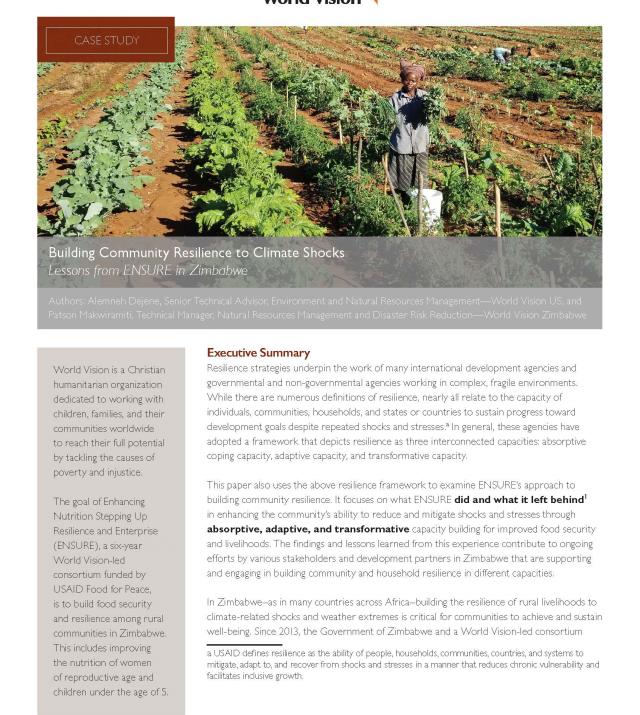The Effects of Social Capital on Resilience Capacity: Evidence from Ethiopia, Kenya, Uganda, Niger and Burkina Faso

Learn more about this resource:
The Effects of Social Capital on Resilience Capacity: Evidence from Ethiopia, Kenya, Uganda, Niger and Burkina Faso is the fourth report in Feed the Future's Technical Report Series No. 2: Strengthening the Evidence Base for Resilience in the Horn of Africa. This publication is prepared by experts for the Technical Consortium for Building Resilience in the Horn of Africa.
This paper examines empirical evidence from several studies focused on measuring resilience including the Pastoralist Areas Resilience Improvement and Market Expansion (PRIME) program Impact Evaluation Baseline and the PRIME Interim Monitoring Survey (IMS) in Ethiopia, the Building Resilience and Adaptation to Climate Extremes and Disasters (BRACED) program Baseline in Kenya and Uganda, and the Resilience in the Sahel-Enhanced (RISE) initiative Impact Evaluation Baseline in Burkina Faso and Niger. The analysis assesses the extent to which the different types of social capital affect resilience. Specifically, this paper looks at the links between social capital and the following: household food security, households’ ability to recover, shock impact and household asset wealth.
Other Reports in the Series:
Report 6: Shocks, Resilience Capacities and Response Trajectories Over Time
